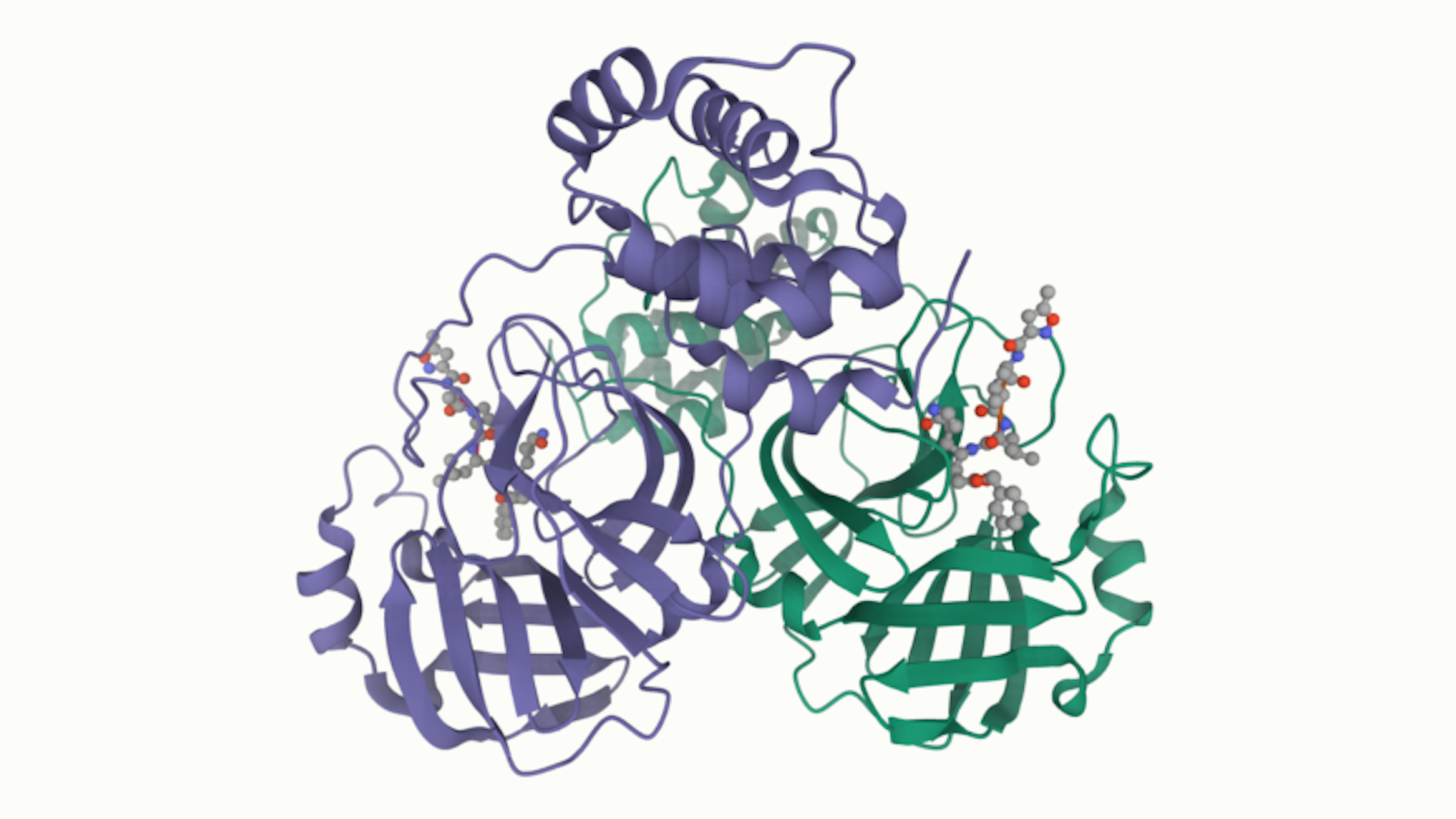While Computer Labs Await the Return of Students, MSU's College of Communication Arts and Sciences Dedicates Unused Resources to Protein Folding Project
Spartans are contributing to a global effort to power the work of research scientists, as they attempt to unravel the inner workings of human proteins and study diseases like cancer, Alzheimer’s, Zika — and now COVID-19.
In teams across Michigan State University, researchers are dedicating the use of computers to simulations in a protein folding project called Folding@home.
“Essentially, the project is a way of using unused processing power from multiple computers all over the world to do complex math,” said Sam Mills, a Systems Engineer at Michigan State University. “When the power of those computers is combined, it adds up to a substantial amount of resources that researchers can use to study crucial health issues.”
The project takes a system’s unused resources and devotes this power to protein folding simulations, a process that helps researchers understand how proteins are assembled and how diseases are formed at a cellular level. These computer simulations have led to a better understanding of a wide variety of conditions.
In April, the creators of the project launched an update to the software that allows people to prioritize COVID-19 projects. The hope is that the additional computing will help researchers find better treatments for COVID-19, reducing the death toll in a global pandemic.
“Right now, the project is focused on simulating protein dynamics of COVID-19. Hopefully, this project will be able to provide data that helps us better understand COVID-19, and that could lead to better treatment methods,” said Mills. “Our college is having a measured impact on COVID-19 research by donating these computational resources to the Folding@home project. That is pretty cool.”
Folding refers to the way a human protein folds inside cells that make up the human body. These proteins help the body stay healthy. Proteins assemble themselves by folding, but when proteins misfold, there can be serious consequences to human health. For researchers, understanding how these proteins work depends on countless hours of mathematical computations and computer simulations. The simulations can be used to explain the molecular structure of the proteins, which are too small to see under a microscope.
After MSU moved to virtual instruction to protect the college community from the outbreak of COVID-19, a disease caused by the novel coronavirus, many of the buildings on campus stood empty. That’s when the team at ComArtSci decided to contribute the power of its state-of-the-art gaming and computer labs to the protein folding project.
“In ComArtSci, we have a unique opportunity to put the gaming computers to work. They have high-end graphics cards that are able to do these computational tasks very efficiently,” said Mills. “With students not allowed in the labs, the computers would otherwise be gathering dust, but instead we have this program running.”
The project called Folding@home has been in operation since 2000. With software running on system’s across the world, the goal of Folding@home is to reach one million folders.
“What I love about being a Spartan is that even when we have to completely adjust our teaching and research, we look for ways to make a difference,” said Eric Hunter, Associate Dean for Research at ComArtSci. “We can remotely utilize our idle state-of-the-art teaching facilities — all while keeping our faculty and students safe at home. We have repurposed our tools toward predicting potential protein structures, which are important to understanding disease as well as stable mini-proteins that could be used in potential therapeutics and diagnostics.”
Many teams at MSU have made substantial contributions of computational power to this project. On the web, viewers can find rankings of those who are donating resources to protein folding across the globe, as well as a ranking of the different teams who are donating power from MSU.
With hundreds of thousands of contributors, a recent ranking put MSU at number 302. ComArtSci has been quickly moving up the ranks among the university’s teams. Upon publication, the college ranked seventh in the top 10 contributors at MSU. ComArtSci is also earning the most points per day among MSU contributors.
Originally launched at Stanford University, Folding@home is now based at Washington University in St. Louis School of Medicine. The project is a partnership with many universities, institutions and commercial companies, with funding from the U.S. National Institutes of Health (NIH) and the National Science Foundation (NSF), among others.
Anyone can participate in the project by downloading the software. For a competitive edge, participants can join many teams to see where they rank in powering this computational work.
For more information, visit: foldingathome.org
By Melissa Priebe
